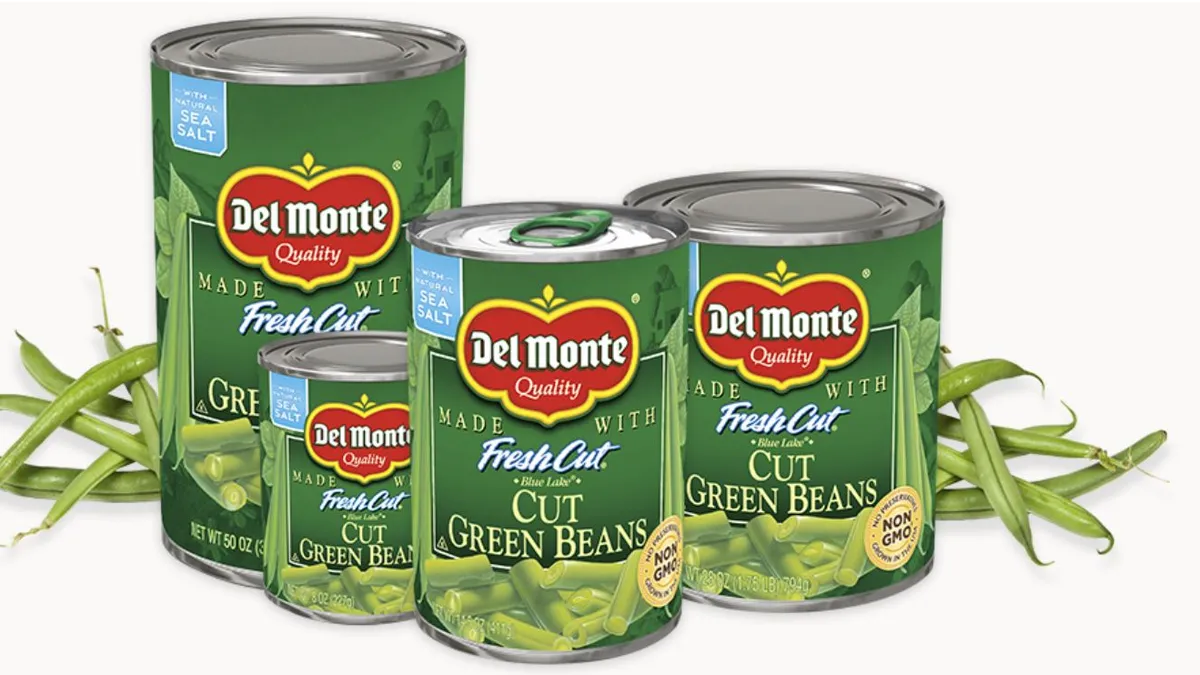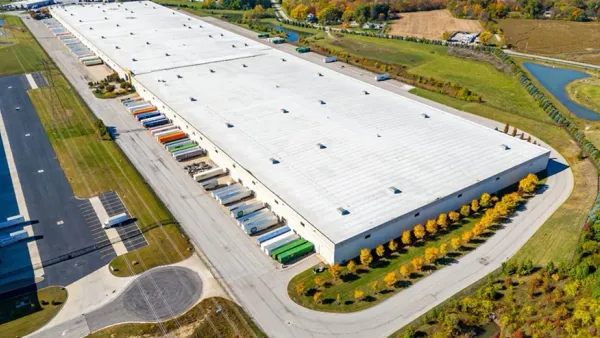Dive Brief:
- Del Monte Foods said it plans to achieve net-zero emissions by 2050 after making changes to its own operations rather than purchasing carbon credits to offset them.
- In addition to the steps it has already taken, the canned fruit and vegetable company said it will invest further in key areas to reduce its carbon emissions, including packaging innovation, regenerative agricultural practices, automation, renewable energy and transportation efficiency.
- More than one-third of global greenhouse gas emissions come from food production, according to a United Nations report issued last year. As consumers look to companies whose values adhere to their own interests, CPGs are under pressure to reduce their environmental footprint.
Dive Insight:
Last November, countries gathered in Scotland to discuss climate change and ways to strengthen their emissions pledges.
Nearly six months later, the issue remains a hot-button topic, especially among consumers, and companies appear to be remaining vigilant about curtailing their own impact on the environment. Before Del Monte's announcement this week, several other companies have pledged to hit net-zero emissions targets, in many cases using similar same tactics.
Mondelēz International has committed to achieving net-zero emissions by 2050 across its value chain by focusing on sustainable ingredients sourcing, adopting renewable energy and improving the efficiency of its distribution logistics, among other measures. Nestlé has set goals of halving its emissions by 2030 and reaching net-zero by 2050, while Mars strives to hit net-zero emissions by 2050 in part through shifts in its agricultural supply chain. Similar commitments have been made by Mexican food giant Grupo Bimbo and Unilever.
A nearly 3,000-page report last week released by the United Nations' climate panel said about a quarter of the greenhouse gas cuts needed to prevent the worst impacts of climate change could come from food and agriculture. The authors specifically highlighted protecting forests, changing diets and altering farming methods.
Del Monte underscored many of the efforts it has undertaken already to reduce its carbon footprint.
These include streamlining its operations to maximize output and eliminate unnecessary emissions from facilities operating at less than full capacity; doubling its capital investment in production operations to add automation and other technologies for improved efficiency and reduced waste; investing in renewable energy; and cutting food waste.
The company said it has taken steps to reduce transportation emissions. Del Monte upped the use of rail by 20% over the past year while optimizing truck transportation by increasing average truck miles per gallon by 14.3%, according to a statement.
Last year, Del Monte announced what it said is the industry’s first canned vegetable product to be certified by the Upcycled Food Association under its new upcycled certification program. The company's Blue Lake Petite Cut and Blue Lake Farmhouse Cut Green Beans are made with 100% upcycled and sustainably grown green beans from Wisconsin and Illinois.
Del Monte is pledging to reach its 2050 net-zero emissions goal by making changes on its own rather than purchasing carbon credits generated by other groups.
"It’s exciting to be aligned with the most aggressive path to net-zero," Molly Laverty, environmental, social and governance senior manager at Del Monte Foods, said in a statement. "The food industry has an important role to play in reducing greenhouse gas emissions."
Companies have little choice but to do more as consumers increasingly vote with their pocketbooks at the grocery store. In many cases, shoppers are willing to pay more for offerings that mirror their own personal values.
A study from Mondelēz International found the majority of consumers are incorporating their values into what snacks they want to buy. And a separate study this year from Cargill said 55% of global consumers are more likely to purchase a packaged food item that is labeled with a sustainability claim, up four points from the company's last survey in 2019.
















